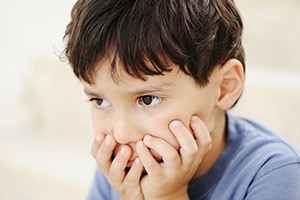Modeling good manners

There is no better way to teach good manners than to demonstrate them day in and day out in the presence of your children.
by Susan Stiffelman —
“Me first;” “I want more;” and “Those are mine!” are all the normal expressions of a child who has not yet developed empathy or diplomacy. Children are naturally egocentric; if there is only one piece of pie left, they will grab it. If your daughter is having fun on the swing set, she is going to resent giving it up to another child waiting for a turn. That does not mean she is selfish; it just means she is behaving like a child. A parent’s uncritical guidance helps young ones learn the basics of showing concern about the wishes and needs of others.
There is no better way to teach good manners than to demonstrate them day in and day out in the presence of your children. For instance, at mealtimes ensure that no one begins eating until everyone has been seated and served. If your kids forget, let them know that you understand that they are hungry while modeling patience as others dish up their food before you pick up your fork.
Help your children learn to share and take turns when they have a friend come over to play. Explain that you know it is hard to wait for a turn on the piano or to leave the bigger piece of cake for someone else, but that in your home, guests are treated with special care.
Teach your children how to introduce people. “Ms. Norris, I would like you to meet my cousin Joey” or “Grandpa, this is my friend Elsa.” Make friendly greeting rituals part of the way you welcome guests into your home. Show your children how to make eye contact while offering a handshake to an arriving guest — or a hug, if appropriate and comfortable for your child.
Part of having good manners is acknowledging another person’s feelings. When you show your children what it looks like to be accountable for an oversight or an inconsiderate remark, they will follow your lead. If you offend someone, let your kids hear you apologize, without justifying your behavior. Finally, make sure your youngsters know how to receive a compliment. Saying “thank you for that” is a simple, gracious way to take in someone’s kind words and is much healthier than deflecting them.
Do not save good manners for when company is around or those times when you are out in public. Children smell hypocrisy a mile away. Use the magic words — please and thank you — authentically when you speak with your loved ones. Peggy O’Mara, founder of Mothering magazine said, “Be careful how you speak to your children. One day, it will become their inner voice.”
Children develop civility, thoughtfulness and a considerate nature when they grow up in the midst of caring and respectful behavior. Acknowledge when your children exhibit good manners, and gently correct them when they forget. Do not expect them to behave perfectly, and make sure to factor in their developmental stage as you set expectations for their behavior.
And if you have a child with a developmental challenge or psychological issue, do not succumb to the guilt and shame that often show up when you imagine that others are judging you for your children’s awkwardness or shortcomings. Get the loving support you need so that you know that your best is more than good enough, regardless of how your children behave.
Avoid creating power struggles about manners, especially with your teens. Trying to force a child to apologize or be polite will only backfire. With patience and loving guidance, your children will become the kind of people who make others comfortable. Ultimately, that is what good manners are all about.
Susan Stiffelman, MFT, is the author of Parenting with Presence and Parenting Without Power Struggles. She is a licensed marriage and family therapist, a credentialed teacher, and the Huffington Post’s weekly “Parent Coach” advice columnist. newworldlibrary.com or ParentingWithoutPowerStruggles.com.
Reprinted from AzNetNews, Volume 34, Number 4, August/September 2015.





August 10, 2015
August/September 2015, Children and Teens, Featured